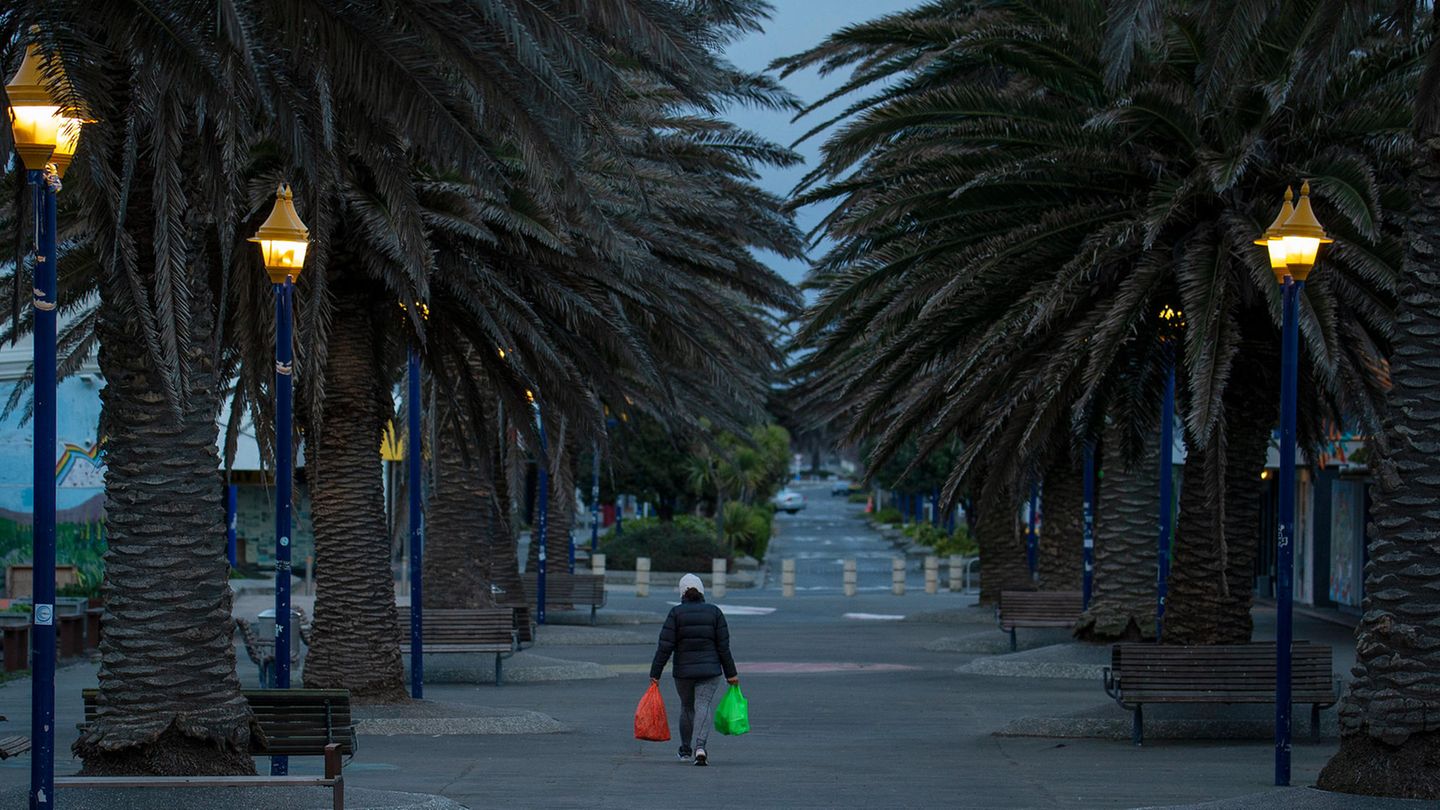New Zealand has long shown what rigorous virus control can look like. Then Delta came along and brought down the no-covid strategy. Now the country has to rethink and deal with omissions.
For months, New Zealand was a place of longing for many who wanted to escape the pandemic. While the virus raged in many parts of the world, the image of an island of the lucky ones emerged there. For months there was not a corona case there and an almost unbelievably normal life was possible. But the wind has long since turned. The former model student has been writing negative headlines for weeks. Now it is certain: the latest corona outbreak not only shook the no-covid strategy, it brought it down. Now the country urgently needs to come to terms with failures.
What is currently going on in New Zealand could hardly be imagined months ago. Because with a long lockdown at the beginning of the pandemic, the New Zealanders had managed to eradicate all sources of infection. With strict border closings, they ensured that the virus was not reintroduced to the island. The numbers spoke for themselves. The pandemic took place largely outside the island. Then came August.
The Delta version became a game changer
August 16th is the day the problems started. A man from Auckland went to the doctor; he complained of a sore throat and had a cough. The next day it was clear: the Delta variant had made it to the island. A nationwide lockdown has been declared. But the variant continued to expand and that quickly. Just six days after the new outbreak became known, Health Minister Chris Hipkins told TVNZ that the Delta variant could not be compared with anything that had previously occurred in the pandemic. And, “It means that all of our preparations so far seem less useful, and it raises some pretty big questions about the future of our long-term plans.” Within two weeks, New Zealand counted more than 500 new infections, by Monday the total number of the current outbreak swelled to 1,357 cases.
It wasn’t long before the critics took the opportunity to rub off New Zealand’s elimination strategy. Many judged that no-Covid had failed. Harsh criticism. After all, the corona balance of the five million state is still good, despite the current development. Around 4,400 cases of infection have been confirmed since the beginning of the pandemic, 27 people died in connection with Covid-19. The infection rate is extremely low at 0.09 percent. Virologist Isabella Eckerle spoke up in a Twitter post at the beginning of September in which sio described “the satisfaction, almost glee” about the difficulties Delta had with No-Covid as disconcerting. “Countries that have implemented this in the last 1.5 years had hardly any COVID19 deaths, no LongCovid, no school closings & practically a normal life.”
Is New Zealand missing a plan b?
Yet the critics are not entirely wrong. Because, that is also part of the truth, the country seems to have relied a little too much on its strategy for success. The island state is now increasingly falling on its feet. Corona rapid tests, as they have been around for a long time in Germany, for example, are not offered in New Zealand. In addition, the state still has only a few intensive care beds. According to “Zeit” there are just 4.6 beds for every 100,000 inhabitants, compared to 38.7 in Germany. But New Zealand seems to have slept a long time in one area in particular: vaccinations.
Opposition politician Chris Bishop spoke up just six days after the outbreak in August. He accused the government of paying too little attention to the progress of the vaccination campaign. “The government’s complacency and inability to ensure the supply and delivery of the vaccine has made easy prey for all of us,” he said.
New Zealand made a late decision to buy corona vaccines. The purchase was only sealed in October 2020 and was clear. The purchase included vaccines for 750,000 people, about 15 percent of the population. At the time when the island was called corona-free, the campaign was rippling more badly than right. Only in the past few months has it picked up speed. The vaccination rate on the island is still comparatively low. According to official information from the Ministry of Health, 41 percent of the population are now fully vaccinated against the coronavirus, 67 percent have received at least one vaccine dose (as of October 4).
Farewell to the no-covid strategy
Has New Zealand rested on its status for too long? The possibility that the virus might make it to the island again, that the elimination strategy might no longer work, has been underestimated? One thing is certain, the delta variant has also become a game changer for the island nation. Although Auckland has been in lockdown for weeks, new cases of infection are becoming known. According to the authorities, it was 33 on Sunday. This is a comparatively low number, but this time the virus could not be eliminated despite weeks of strict measures. In addition, the virus now appears to be spreading outside of Auckland’s city limits. Three new corona cases have been confirmed on the North Island.
The situation is messed up. The country seems to be stuck. The mood is increasingly turning. The calls for new ideas and especially for easing such as border openings are getting louder. The former Prime Minister John Key wrote in an opinion piece on “Stuff” of New Zealand as a “complacent hermit kingdom”, compared the policy of isolation with that of North Korea and called for a specific date for the opening of the borders. Opposition leader Judith Collins also said on Sunday in a Twitter post regarding current developments that the elimination strategy is no longer working. A new approach is urgently needed. But, she complained, the government did not have an exit strategy.
On Monday, Prime Minister Jacinda Ardern also had to admit: “With this outbreak and because of Delta, a return to zero is incredibly difficult, our restrictions alone are not enough.” She declared the zero covid strategy to be over; it would not have led to the desired goal of zero cases with this outbreak. Nevertheless, she defended the action. “The elimination was important because we didn’t have vaccines. Now we have it, so we can start changing the way we live. We have more options and there is good reason to be optimistic about the future . “
Optimism. A big word in turbulent days. Ardern is now relying on mass vaccinations, slowing the spread through contact restrictions. As soon as 90 percent of the population has been vaccinated, the lockdown should end. Some restrictions in the city of Auckland are due to be lifted this week. It is a slow change of course towards something that others have been trying for a long time: a life with Corona.
, ,




